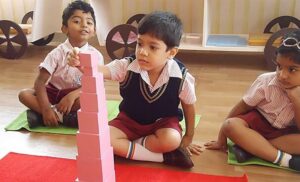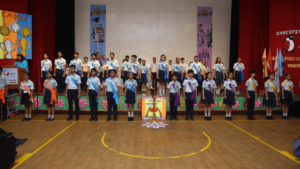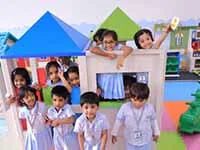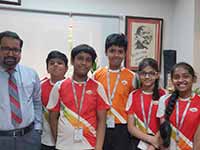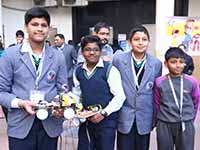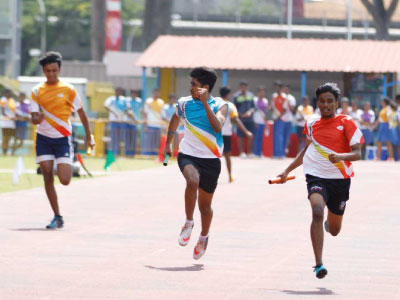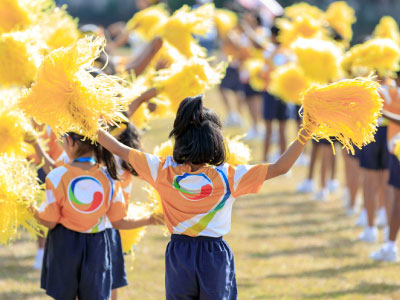Download our FREE Academic Calendar now! 📚 Start your child’s journey to success.
Getting left out in a group of school kids in an International School in Noida, having no one to sit with at the cafeteria during the lunch period, being avoided, not being invited to any birthday party of the classmates and being picked up as the last resort for the team are all examples of social exclusion.
We have all faced it at one time or the other and there is no shame in admitting that it definitely hurts. If a child is being socially excluded then they get impacted in a very bad way, their emotional well being is hampered and in many cases their academic achievements are also thwarted.
There are examples when a student avoids going to school completely because of these kinds of behaviours from their peers and in other cases they are scarred for life and have difficulty making friends even when they grow up.
What Happens When Your Child is the Bully?
International Preschool students get a lot of exposure to children of other nationalities, races and religions. What do you do when you come to know that your child is the one who is doing the excluding? If you find out one fine day that your child is a bully, what will be your course of action? What are the steps that you are going to take to make them understand the importance of inclusiveness?
How do you deal with their preferences and biases and will you still allow them to choose who to hang out with on the basis of those viruses or not will be completely up to you as a parent. But you must always keep in mind that if you do not teach your child inclusiveness and the value of liberal behaviour, then it might be a major problem once they grow up irrespective of them studying in the best International School in Noida.
Realising That Exclusion is a Type of Bullying
Whenever a child excludes any other child, that is a form of bullying which is also known as social bullying or relational aggression. This term is mostly used for social networks and either in real life or their online activities, if they are hurtful towards someone then it is a sign of exclusion, which is one of the tactics utilised by relational bullies.
Author Scott peck describes that a healthy group has the potential to create a sense of purpose as well as value for themselves by selecting an individual to become a common enemy and polarize him or her by their behaviour.
What he is trying to refer to here is when a group of bullies or mean girls build their identity through keeping an individual out as well as attacking that person’s reputation as value.
Cyber Bullying
There will be instances when the group will make fun of the person or engage in activities like name-calling and leaving that particular person off any invitation list. Bullying can also be online and they could do cyber shaming, subtweeting or even cyber bullying.
In other cases the group might also pretend like the person does not exist at all. Generally, one person in the group is the leader and they take the full responsibility of shaming and ostracizing as well as pressurizing the others to bully the targeted person. As a result, the members of the group have no other choice than to either participate or stay mute when the mean behavior occurs.
Relational Aggression – Reports International School in Noida
What makes matters worse is when parents ignore relational aggression between children and adolescence to be a serious issue. They make suggestions to ignore the group and play with other friendlier children however the parents need to understand that minimising the pain of exclusion is not a good idea and one has to face the problem and not avoid it.
All you have to do is remember that all kids irrespective of their age benefit from having adults who listen to them and validate their feelings whenever they want it.
Kids internalise messages like users from their peers but they also might act in ways that are self-destructive in nature. For example, all those kids who become depressed, which is a very common trait during the adolescence, contemplate suicide or self harm on a regular basis.
In some cases, the victim becomes bitter and looks for ways to get revenge. That is the reason it is said that without proper support a child might begin to believe that everyone else who is important in the world thinks that he or she has no value or worth.
Educate your Child to the value of Inclusiveness
One of the absolute best ways to aid in the battle against exclusion is to teach your child from a very early age the significance of inclusiveness and how they can be inclusive of everybody else around them.
Let us discuss few steps:
Examination of Diversity Deficits
You must check your own diversity deficits. You have to remember that the kids watch, listen, learn and emasculate everything that you do. Examine how your behaviour towards your neighborhood, your friends, your community has been. How you deal with people who are outside your social group. Then examine them when you put them in an international preschool, where there are students of different backgrounds.
Question Yourself First
Try to be honest with yourself. Ask yourself questions like:
● How often do you or your family interact with people who are not of your religion, community or ethnicity?
● Do you have friends who are from different religions or races?
● How do you treat or behave with them?
● How accepting are you of other people?
● Have you ever made judgements or maintained stereotypes?
● In case if you want your child to be inclusive then you have to be one too?
● Support other people’s Individuality?
You must tell your child to respect themselves as worthwhile and unique people and value other people’s individuality as well. Tell them that other people’s personality, appearance, beliefs, quirks and interests are what makes them special and they will get along in their international preschool in a good way.








